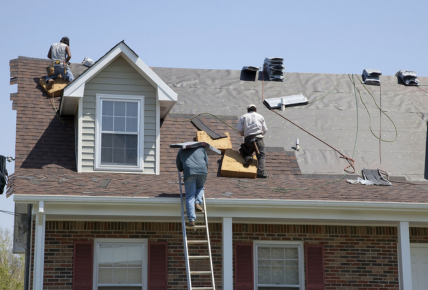It’s one of those questions that sounds simple… until you actually try to answer it. You’ve got your monthly electric bill in one hand and your curiosity in the other: is electricity cheaper for business or residential users?
At first glance, the idea seems straightforward. Businesses use more power, so surely they get better rates, right? Well… kind of. But also, not always. The truth lives somewhere between spreadsheets, utility policies, and the wild world of peak-hour pricing.
Let’s walk through this together—no jargon, no energy PhD required. Just a little common sense, real-life context, and a bit of curiosity.
The Pricing Puzzle: It’s Not One-Size-Fits-All
The price of electricity isn’t like the price of a carton of eggs. It varies based on usage, time of day, volume, location, demand, and whether you’re running a bakery or heating up leftover pizza at home.
Businesses and homeowners are billed differently. Businesses—especially large ones—are often charged based on demand charges, which take into account not just how much electricity they use, but how fast they use it. Kind of like ordering 100 meals all at once vs. ordering one per hour.
On the flip side, residential users typically get billed under a simple tiered or time-of-use structure. It’s less complicated, but often less flexible.
This difference in billing structure is one of the reasons is business electricity cheaper than residential has such a slippery answer.
Why Businesses Often Get the Better End of the Deal
Here’s the thing: businesses use a lot of electricity. And they use it in predictable ways. Office buildings, for instance, might light up from 9 to 5 and go dark after hours. Manufacturing plants operate on schedules. Restaurants run peak appliances around lunch and dinner.
This consistency and volume allow utility companies to plan more effectively, and in turn, offer more favorable rates. Think of it like buying in bulk at a warehouse store—you’re rewarded for volume.
And then there’s negotiating power. Unlike the average homeowner, businesses can often shop around, negotiate rates, and even work with third-party energy providers to lock in long-term deals.
It’s part of the reason people ask why is commercial electricity cheaper than residential—and more often than not, the answer comes down to scale and leverage.
But Hold On—Cheaper Doesn’t Always Mean Better
Before you start wishing your living room was classified as a business zone, here’s the flip side: commercial energy plans come with strings attached.
Those “demand charges” we mentioned earlier? They can be brutal if your energy usage spikes unexpectedly. If your business powers up all equipment at once in the morning, your utility might charge you a premium for that surge.
Also, businesses are more susceptible to penalties, peak demand fees, and rigid contract terms. One bad month or an unexpected outage can lead to some painful surprises on your invoice.
So yes, rates can be lower, but the risks? They’re a bit higher too.
Residential Electricity: Simpler, Safer, and Sometimes Just Fine
Now, let’s not knock residential plans. They may not have the lowest per-kWh cost, but they come with perks of their own.
For one, they’re simpler. You use electricity, you get billed. No need to track demand curves or negotiate contracts. And in many places, residential consumers benefit from protections—price caps, subsidies, and guaranteed service continuity—that businesses just don’t get.
In fact, during energy shortages or natural disasters, residential consumers are often prioritized for service restoration. You may pay a bit more, but you’re also getting a safety net.
Location, Location, Location
Geography plays a huge role too.
In deregulated markets like Texas or parts of the UK, both businesses and homeowners can shop around for energy suppliers. That means rates are more competitive—and sometimes confusing.
In regulated markets (think most of California, parts of the Midwest), your utility is your only choice. In these places, business rates might be lower per unit, but residential rates tend to be more stable.
So, the “cheaper” question isn’t just about usage—it’s about where you live, how the grid is managed, and what kind of power plan you’re even allowed to access.
The Green Factor: Solar, Smart Meters & Beyond
Let’s toss a wrench into everything we just discussed: alternative energy.
More and more businesses are investing in solar panels, battery backups, and energy-efficient tech. The result? Even lower operating costs.
Homeowners are doing it too, but the payback period can be longer for a small house vs. a massive facility with a flat roof and endless sunlight.
Smart meters and time-of-use plans also shift the equation. If you’re savvy with your timing—like running your dryer at 10 p.m.—you can slash your residential bill in ways that mirror commercial savings.
So in a way, residential customers can catch up. It just takes a little strategy.
Final Thoughts: It’s Complicated (But Doesn’t Have to Be)
So where does that leave us?
Well, the next time someone at a barbecue leans in and asks, “Hey, is electricity cheaper for business or residential?” — you can give the most honest answer possible: It depends.
It depends on where you live. What kind of power you use. When you use it. Whether you’re charging laptops or powering machinery. Whether you’re locked into a contract or free to compare rates.





